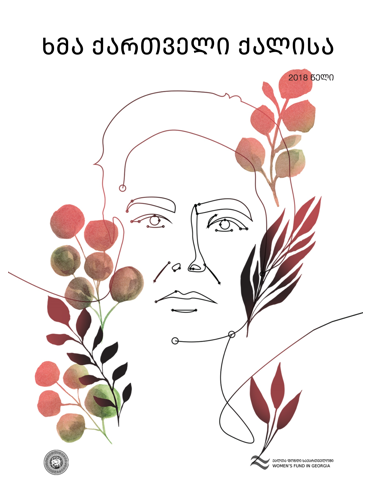გამოქვეყნებული 2021-12-30
საკვანძო სიტყვები
- ჰომონაციონალიზმი,
- ტრადიციონალიზმი,
- რუსეთი,
- ლგბტ უფლებები,
- პრაიდი
- იმპერიალიზმი,
- გეი ინტერნეიშენალი,
- ტრანსნაციონალიზმი ...More
როგორ უნდა ციტირება
ანოტაცია
ეს სტატია 2013 წლის 17 მაისს, ჰომოფობიასა და ტრანსფობიასთან ბრძოლის დღეს თბილისში განვითარებულ მოვლენებს შეისწავლის ტრანსნაციონალური ფემინისტური პერსპექტივიდან. ის ტრადიციების დაცვისა და ლგბტ უფლებების დისკურსების ტრანსნაციონალურ ასპექტებს აანალიზებს, და აჩვენებს, რომ 17 მაისის მშვიდობიანი დემონსტრაციის წინააღმდეგ აგორებული ძალადობრივი ტალღის გასაგებად, პირველ რიგში ტრადიციული ღირებულებებისა და სექსუალური დემოკრატიის დისკურსების იმპერიალისტური და გეოპოლიტიკური მნიშვნელობა უნდა გავიაზროთ. ამისათვის, სტატიის პირველ ნაწილში სექსუალობისა და ნაციონალიზმის ურთიერთკავშირს განვიხილავ. ამ ნაწილში, განსაკუთრებულ ყურადღებას ვუთმობ ჰომონაციონალიზმის ცნებას. ჰომონაციონალიზმი, ერთი მხრივ, სექსუალური თავისუფლებების დაცვას სახელმწიფოს ეფექტურობის გასაზომად იყენებს, მეორე მხრივ კი სექსუალური თავისუფლებისათვის მებრძოლი ჯგუფების პოლიტიკასა და სტრატეგიას განსაზღვრავს მსოფლიოს სხვადასხვა წერტილში. სტატიის მეორე ნაწილში, ტრადიციების დაცვისა და ანტი-ლგბტ დისკურსების მსგავს იმპერიალისტურ საფუძვლებს ვაანალიზებ. განსაკუთრებულ ყურადღებას კი რუსეთის, საქართველოს ისტორიული დამპყრობლის როლის ანალიზს ვუთმობ ტრადიციონალისტური დისკურსების მხარდაჭერასა და გაძლიერებაში მის ყოფილ თუ დღევანდელ კოლონიებში. ტრადიციონალისტთა და სექსუალური დემოკრატიის დისკურსების საქართველოს მაგალითზე განხილვით სტატია წარმოაჩენს, რომ სექსუალური პოლიტიკის ტრანსნაციონალური ასპექტების ანალიზი ჰომოფობიურ და ლგბტ-მხარდამჭერ დისკურსებს შორის კონფლიქტის გასაგებად აუცილებელია.
წყაროები
- Agathangelou, A. M. (2013). Neoliberal Geopolitical Order and Value. International
- Feminist Journal of Politics, 15(4), 453–476. https://doi.org/10.1080/14616742.2013.841560
- Aghdgomelashvili, E. (2012) Homophobic Hate Speech and Social Processes in Georgia,
- Situation of LGBT Persons in Georgia, WISG
- Alexander, M. J. (1994). Not Just (Any) Body Can Be a Citizen: The Politics of Law,
- Sexuality and Postcoloniality in Trinidad and Tobago and the Bahamas. Feminist Review, (48), 5–23. https://doi.org/10.2307/1395166
- Alexander, M. J., & Mohanty, C. T. (1996). Introduction: Genealogies, Legacies,
- Movements. In M. J. Alexander & C. T. Mohanty (Eds.), Feminist Genealogies, Colonial Legacies, Democratic Futures (1 edition, pp. xiii–xliii). New York: Routledge.
- Bacchetta, P., & Haritaworn, J. (2011). There are Many Transatlantics: Homonationalism,
- Homotransnationalism. In K. Davis & M. Evans (Eds.), Transatlantic Conversations: Feminism as Travelling Theory (pp. 127–144). Routledge.
- Gagyi A. (2015) Why don’t East European movements address inequalities the way
- Western European movements do? A Journal For And About Social Movements, 7 (2), 15 - 26
- Grewal, I., & Kaplan, C. (1994). Introduction: Transnational Feminist Practices and
- Questions of Postmodernity. In I. Grewal & C. Kaplan (Eds.), Scattered Hegemonies: Postmodernity and Transnational Feminist Practices (pp. 1–35). U of Minnesota Press.
- Grewal, I., & Kaplan, C. (2001). Global identities: Theorizing transnational studies of
- sexuality. A Journal of Lesbian and Gay Studies, 7(4), 663–679.
- Groeneveld E. (2015). Are we all Pussy Riot? On narratives of feminist return and
- the limits of transnational solidarity. Feminist Theory ,16 (3), 289-330
- Kahlina K, (2015). Local histories, European LGBT designs: Sexual citizenship,
- nationalism, and “Europeanisation” in post-Yugoslav Croatia and Serbia,
- Women's Studies International Forum, (49), 73–83
- Kulpa, R. (2014a). Western leveraged pedagogy of Central and Eastern Europe: discourses of
- homophobia, tolerance, and nationhood. Gender, Place & Culture, 21(4), 431–448.
- https://doi.org/10.1080/0966369X.2013.793656
- Kulpa, R. (2014b). On attachment and belonging: Or why queers mourn homophobic
- president? Sexualities, 17(7), 781-801.
- Laruelle, M. (2015, May). The “Russian World”: Russia’s Soft Power and
- Geopolitical Imagination. Washington, DC, USA: Center on Global Interests
- Massad, J. A. (2007). Desiring Arabs (Reprint edition). Chicago: University Of Chicago
- Press.
- McClintock, A. (1997). “No Longer in a Future Heaven”: Gender, Race, and Nationalism. In
- A. McClintock, A. Mufti, & E. Shohat (Eds.), Dangerous Liaisons: Gender, Nation, and Postcolonial Perspectives (pp. 89–112). U of Minnesota Press.
- Mosse, G. L. (1985). Nationalism and sexuality: respectability and abnormal sexuality in
- modern Europe. H. Fertig.
- Moss K. (2014) Split Europe: Homonationalism and Homophobia in Croatia in LGBT Activism
- and the Making of Europe A Rainbow Europe? Ayoub P. A., Paternotte D.(eds),
- Palgrave Macmillan
- Murray, D. A. B. (2009). Homophobias: Lust and Loathing across Time and Space. Duke
- University Press.
- Nagel, J. (2002). Race, Ethnicity, and Sexuality: Intimate Intersections, Forbidden Frontiers.
- New York: Oxford University Press.
- Parker, A., Russo, M., Sommer, D., & Yaeger, P. (Eds.). (1991). Introduction. In
- Nationalisms and Sexualities (1 edition, pp. 1–21). New York: Routledge.
- Persson, E. (2015). Banning 'Homosexual Propaganda': Belonging and Visibility in
- Contemporary Russian Media. Sexuality & Culture, 19 (2), 256-274.
- Polyakova A. (2014, September, October). Strange Bedfellows: Putin and Europe’s Far Right, World Affairs
- Puar, J. K. (2007). Terrorist Assemblages: Homonationalism in Queer Times. Durham: Duke
- Univ Pr.
- Puar, Jasbir (2013) Homonationalism as assemblage: Viral travels, affective
- sexualities, Jindal Global Law Review, 4(2): 23-43.
- Puar, J. (2013). Rethinking Homonationalism. International Journal of Middle East Studies,
- (2), 336–339. https://doi.org/10.1017/S002074381300007X
- Riabov, O., & Riabova, T. (2014). The Remasculinization of Russia: Gender,
- Nationalism, and the Legitimation of Power Under Vladimir Putin. Problems
- Of Post-Communism, 61(2), 23–35.
- Sabsay, L. (2012). The emergence of the other sexual citizen: orientalism and the
- modernisation of sexuality. https://doi.org/10.1080/13621025.2012.698484
- Schotten, C. H. (2016). Homonationalism, From critique to diagnosis, or, we are all
- homonational now. International Feminist Journal of Politics, 18(3), 351–370. https://doi.org/10.1080/14616742.2015.1103061
- Shekhovtsov, A. (2018). Russia and the Western Far Right: Tango Noir. Routledge.
- Retrieved from https://www.routledge.com/Russia-and-the-Western-Far-Right-Tango-Noir/Shekhovtsov/p/book/9781138658646
- Slootmaeckers, K. (2017). The litmus test of pride: analysing the emergence of the Belgrade
- “Ghost” pride in the context of EU accession. East European Politics, 33(4), 517–535. https://doi.org/10.1080/21599165.2017.1367290
- Spread of Russian-Style Anti-Propaganda Laws (2014 February), Human Rights First.
- Retrieved from:http://www.humanrightsfirst.org/resource/spread-russian-style-anti-propaganda-laws
- Stoler, A. L. (2002). Carnal Knowledge and Imperial Power: Race and the Intimate in
- Colonial Rule. University of California Press.
- Szulc, L. (2016). Domesticating the nation online: Banal nationalism on LGBTQ websites in
- Poland and Turkey. Sexualities, 19(3), 304-327.
- Wilkinson, C. (2014). Putting “Traditional Values” Into Practice: The Rise and Contestation of Anti-Homopropaganda Laws in Russia. Journal of Human Rights, 13(3), 363–379. https://doi.org/10.1080/14754835.2014.919218
- რუსული წყაროებიდან ქართული მედიასაშუალებები 5 მილიონი
- დოლარით დაფინანსდა (2015, ივნისი), ინტერპრესნიუსი http://www.epn.ge/?id=7099

